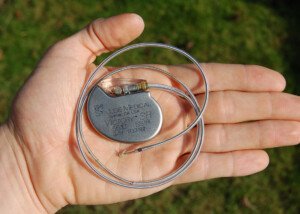
Being obese, no matter how body positive you are, can cause a racing heart or one that thumps and has an irregular rhythm.
The excess fat in one’s body can lead to an arrhythmia, specifically atrial fibrillation.
This heart rhythm disorder raises the risk of blood clots in the heart and brain — which can cause a heart attack or stroke, respectively.
You may “feel” healthy and think you’re healthy because your blood pressure and blood sugar are normal, but atrial fibrillation will NOT affect these numbers.
“Obesity is an independent risk factor for atrial fibrillation, even if the patient is not a diabetic or has elevated blood pressure,” says Susan L. Besser, MD, with Mercy Medical Center, Baltimore; Diplomate, American Board of Obesity Medicine and board certified by the American Board of Family Medicine.
Dr. Besser explains, “Here’s why the risk: Obese people tend to have an enlarged heart because it requires a bit more effort for the heart to send blood around a larger body (even with normal blood pressure).
“So when the heart enlarges, it may not function quite as well — especially the electrical system of the heart that causes your heart to ‘remember’ to beat.
“If there is a short-circuit in that electrical system, you may end up with an abnormal heart rhythm such as atrial fibrillation.”
This disorder is characterized by a suddenly racing, unsteady heartbeat.
The patient won’t always feel it, but when they do, it can feel like a thumping or runaway beat.
Jumping Heartbeat Caused by Obesity
Penn State researchers followed a large group of study participants for eight years:
• Those who were obese
• Those who were not
Dr. Andrew Foy says in the report that if you’re fat and have been diagnosed with atrial fibrillation, weight loss may help treat this abnormal rhythm.

“And if you have obesity, and lose weight through diet, exercise or even surgery, that will help reduce your risk of developing chronic conditions like atrial fibrillation,” adds Dr. Foy in the paper.
If you’re obese and have been experiencing an unexplained racing pulse or the sensation of a thumping heartbeat, this does not automatically mean that you have atrial fibrillation.
However, if you have a lot of fat in your body, and you’ve been feeling strange things going on in your chest, then it’s time to see a cardiologist.
“I’m Not Fat; I HAVE Fat.”
Catchy slogans that detract from the dangers of obesity will not protect the heart from dysfunction caused by all the fat.
Dr. Foy’s study is nothing to sneeze at. It involved tracking 67,278 people (half with obesity), and the average age was 43.8. About 77 percent were women.
• 1.8 percent without obesity developed A-fib.
• 2.7 percent WITH obesity developed A-fib.
Dr. Foy’s team also found that having a lot of fat in the body is almost as significant a risk factor for A-fib as is high blood pressure or diabetes.
Posing in a bikini for selfies to show your Instagram followers will not lower your risk of a disordered heart rhythm.
“When the heart is strained, it can lead to changes in the atrium — and it’s here where we believe structural abnormalities can precipitate atrial fibrillation,” says Foy in the paper, which appears in the April 2018 American Journal of Cardiology.
 Dr. Besser provides comprehensive family care, treating common and acute primary conditions like diabetes and hypertension. Her ongoing approach allows her the opportunity to provide accurate and critical diagnoses of more complex conditions and disorders.
Dr. Besser provides comprehensive family care, treating common and acute primary conditions like diabetes and hypertension. Her ongoing approach allows her the opportunity to provide accurate and critical diagnoses of more complex conditions and disorders.
 Lorra Garrick has been covering medical, fitness and cybersecurity topics for many years, having written thousands of articles for print magazines and websites, including as a ghostwriter. She’s also a former ACE-certified personal trainer.
Lorra Garrick has been covering medical, fitness and cybersecurity topics for many years, having written thousands of articles for print magazines and websites, including as a ghostwriter. She’s also a former ACE-certified personal trainer.
.









































